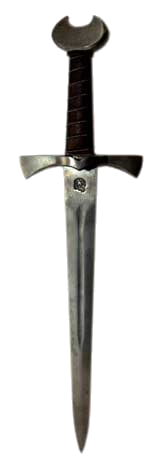R v Blaue
R v Blaue (1975) 61 Cr App R 271 is an English criminal law appeal in which the Court of Appeal decided, being a court of binding precedent thus established, that the refusal of a Jehovah's Witness to accept a blood transfusion after being stabbed did not constitute an intervening act for the purposes of legal causation. This upheld the decision of Mocatta J. in the court below.
| R v Blaue | |
|---|---|
 | |
| Court | Court of Appeal |
| Full case name | Regina v. Robert Konrad Blaue |
| Decided | 9 July 1975 |
| Citation(s) | [1975] 1 WLR 1411; [1975] 3 All ER 446; (1975) 61 Cr App R 271; [1975] Crim LR 648; (1975) 119 SJ 589 |
| Case history | |
| Prior action(s) | Conviction at Teeside Crown Court (trial presided by Mocatta J.) in October 1974 |
| Case opinions | |
| Per curiam (unanimously): manslaughter or murder can remain the appropriate charge notwithstanding that a victim has refused medical treatment, in some circumstances | |
| Court membership | |
| Judge(s) sitting | Lawton L.J., Thompson J, Shaw J [1] |
| Keywords | |
| Novus actus interveniens; causation; blood transfusion; manslaughter on ground of diminished responsibility and wounding; appeal against homicide conviction | |
Facts and legal processes
The defendant entered the home of an 18-year-old woman and asked for sex. When she declined his advances, he stabbed her four times; the wound penetrated her lung which necessitated both a blood transfusion and surgery to save her life. After refusing treatment because of her religious beliefs as a Jehovah's Witness, she died. The prosecution conceded that she would not have died if she had received treatment.[2]
The prosecution did not challenge unrelated evidence that the defendant was suffering from diminished responsibility which reduced murder to manslaughter, decreasing the starting point for any sentencing.
Examined in his case, counsel for the Crown accepted the refusal to have a blood transfusion was a cause of the death.[2] The defence argued that the refusal to accept medical treatment broke the chain of causation (in modern comparative and ancient law in Latin this is called a novus actus interveniens) between the stabbing and her death.
Appeal as to homicide on the basis of causation
The defence and court system saw an appeal heard within 9 months, with its judgment pronounced a month later, and did not dispute the second-count wounding conviction (resulting from a separate charge).[2]
Lawton LJ (the most senior judge on the panel) ruled that, as a matter of public policy, "those who use violence on others must take their victims as they find them,"[2] invoking the thin-skull rule. The defendant's conviction of manslaughter was upheld.[2]
References
- Index Card - case preview Incorporated Council of Law Reporting
- http://www.bailii.org/ew/cases/EWCA/Crim/1975/3.html